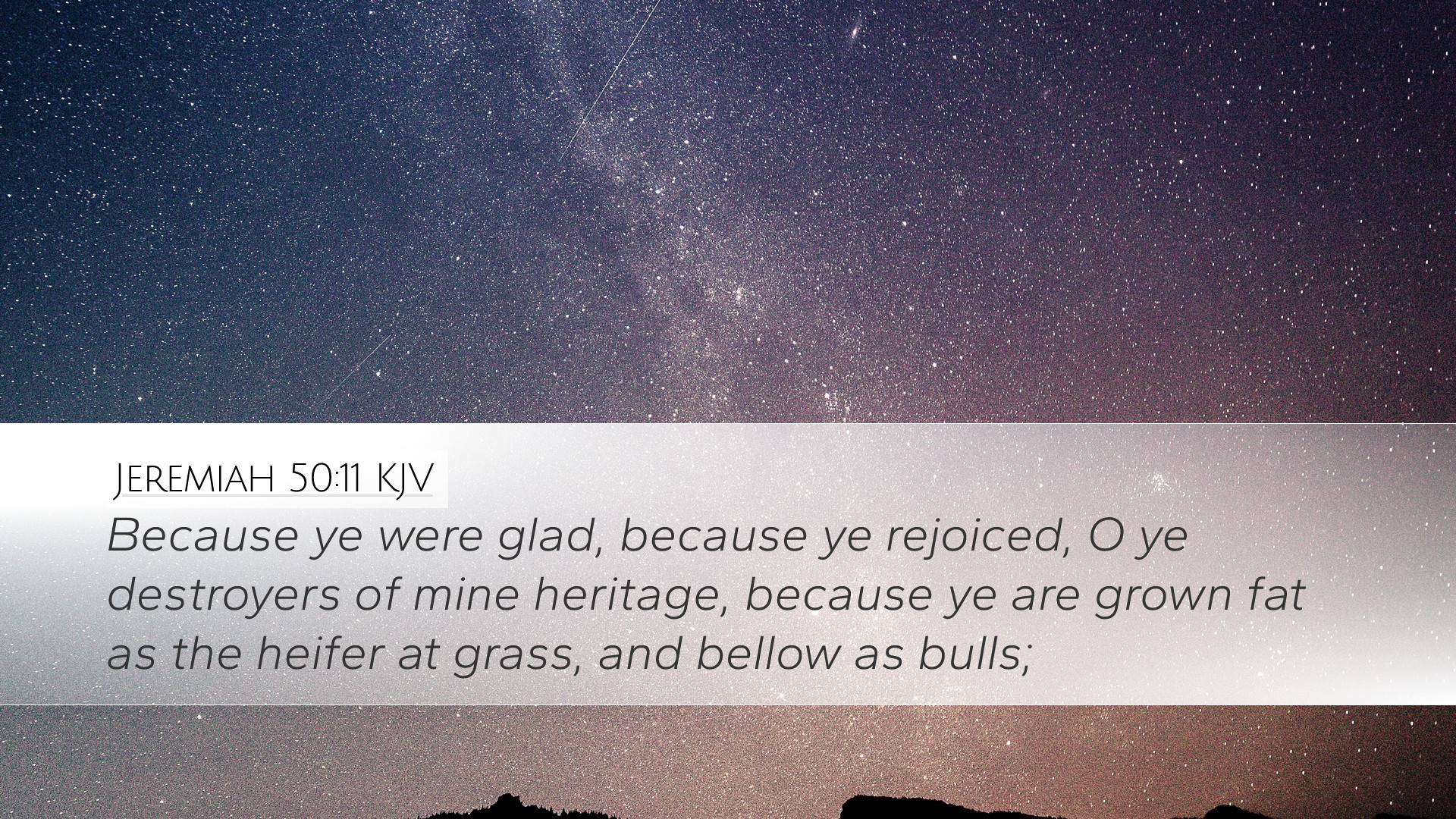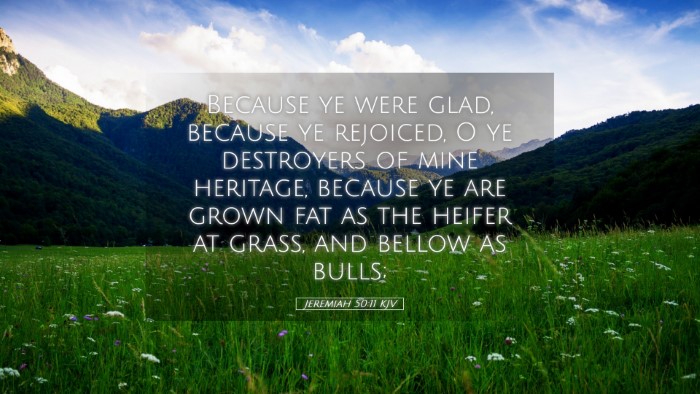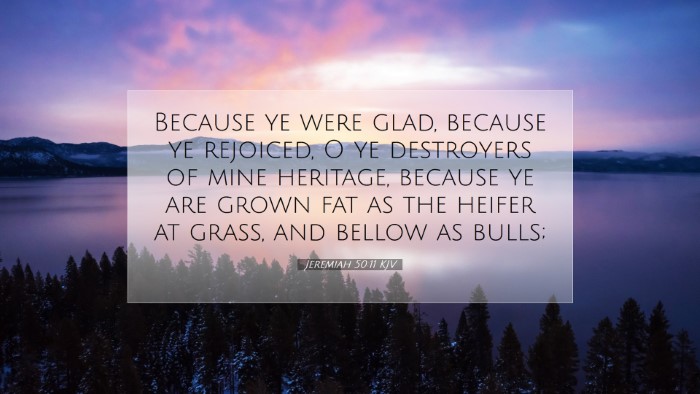Commentary on Jeremiah 50:11
Introduction: Jeremiah 50:11 presents a vivid picture of judgment against Babylon. This commentary aims to explore the historical context, theological implications, and various interpretations from public domain commentaries. Insights from Matthew Henry, Albert Barnes, and Adam Clarke will be woven into a cohesive analysis for pastors, students, theologians, and Bible scholars.
Verse Text
"Because you were glad, because you rejoiced, O you destroyers of My heritage, because you have grown fat like a heifer threshing grain, and you bellow like bulls." (Jeremiah 50:11)
Historical Context
Jeremiah prophesied during a time of great turmoil for the Israelites. The Babylonians had destroyed Jerusalem and taken many Israelites into captivity. This verse addresses Babylon, symbolizing not only the nation but also its leaders and inhabitants who took pleasure in the suffering of God's people.
Babylon’s Role
Babylon is portrayed as a fierce enemy, reveling in their victories over Israel. Matthew Henry notes that Babylon's destruction is inevitable because of her unrestrained pride and brutal conduct towards the Lord's heritage.
Theological Analysis
This verse encapsulates several theological themes:
- Divine Judgment: The passage highlights God's justice. Babylon's rejoicing is met with prophetic warning; their judgment is assured.
- God's Heritage: The reference to "My heritage" signifies God’s people, indicating a special relationship that will not go unpunished when violated.
- Pride and Punishment: Pride leads to spiritual blindness. Albert Barnes interprets that the Babylonians, in their arrogance, do not see their impending doom, implying that God will surely humble the proud.
Imagery and Metaphors
Scripture often employs rich imagery to convey deeper meanings.
- “Heifer threshing grain”: This metaphor implies abundance and unrestrained luxury. Adam Clarke elaborates that the heifer, symbolizing Babylon, was fattened at the expense of others, consuming without regard for the consequences.
- “Bellow like bulls”: This imagery communicates both their loudness in celebration and their brutish nature. The implication is that such celebrations are short-lived.
Commentary Insights
Matthew Henry
Henry emphasizes that the rejoicing of Babylon is not only a celebration of their victory but also a reflection of their moral bankruptcy. He believes that their victory over God’s people fills them with unwarranted pride, invoking God's wrath.
Albert Barnes
Barnes comments on the arrogance of the Babylonians, linking their delight to the finality of judgment. He points out that their activities have consequences, warning about the inevitable flip of their fortunes. He urges readers to see the moral of God's governance over nations.
Adam Clarke
Clarke offers insights into the nature of Babylon's oppression. He notes that the Babylonians' happiness in their plunder will turn into despair, underscoring that joy derived from sin is fleeting. He encourages a deep reflection on the nature of genuine joy, one that should be rooted in righteousness rather than rebellion against God.
Practical Application
For pastors, theologians, and students, Jeremiah 50:11 serves as an important reminder about the consequences of pride and the fate of oppressors:
- Understanding God's Justice: This verse reinforces that God is ultimately in control and will act against those who take pleasure in wrongdoing.
- Community Reflection: It invites a reflection on how a community can oppose oppression while seeking justice, aligning itself with God's heart for His heritage.
- Personal Examination: Individuals are challenged to examine their own responses to others' suffering and to ensure they do not revel in the misfortunes of others.
Conclusion
Jeremiah 50:11 is a powerful reminder of God's concern for His people and His righteousness. The insights from public domain commentators enrich our understanding of the text and its implications for both ancient and contemporary audiences. Readers are encouraged to heed the warnings of pride and the transient nature of worldly joy while resting in the assurance of God's ultimate justice.


